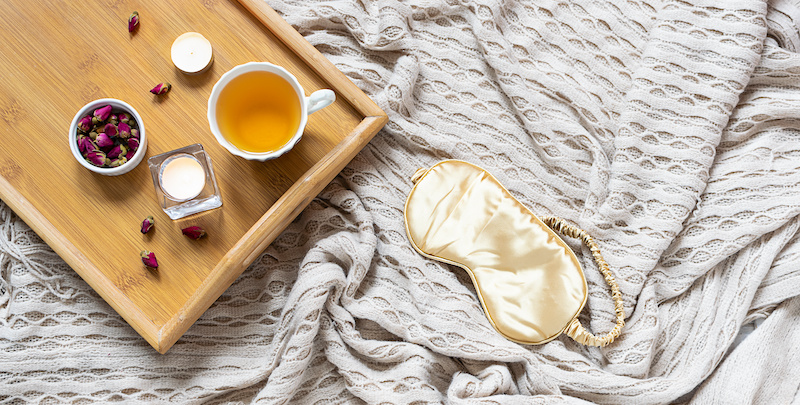What do you think of when you hear the word hygiene? For many of us, our first thoughts usually jump to personal care such as washing our hands, taking showers, and brushing our teeth. These are all aspects of personal hygiene practices, but the word “hygiene” itself actually has broader uses.
Hygiene, when looked at generally, is defined as practices that maintain health and prevent disease. While personal hygiene habits to maintain cleanliness may be the most well-known types, hygiene can describe any recommended “clean” practices used to maintain health in different aspects of life, such as with sleep.
Keep reading to learn more about sleep hygiene including:
What is sleep hygiene?
Sleep hygiene refers to healthy practices that can help you get regular, restful sleep. More simply put, the term sleep hygiene is another way to say ‘healthy sleep habits’.
Good sleep hygiene can help you get better sleep and has many health benefits, while poor sleep hygiene will negatively affect your sleep and has health consequences.

[Image description: Two people are wearing activewear as they go for a jog in the park. They are looking at each other and talking.]
Why is sleep hygiene important?
We all want a good night’s sleep to feel rested and refreshed for the day, but the cost of poor quality sleep can be far greater than being a little grumpy before your morning coffee. Poor sleep can have gravely negative consequences for your overall health and well-being.
The quality of sleep can range from sleeping like a rock without fail every night, on one end of the spectrum, to consistently struggling to get a good night’s sleep, on the other — and everything in between. Most people have a bad night’s sleep once in a while, but there are more people that consistently struggle than you might think.
About one in five Americans are affected by a major sleep disorder, which include conditions such as sleep apnea, insomnia, and restless leg syndrome.
Additionally, poor quality sleep and sleep disorders are not stand-alone problems, and can contribute to issues with mental and physical health as well.
For example, poor sleep quality can affect certain functions of the brain such as memory. When you sleep, your brain processes the information and memories of the day, and helps you get the rest you need to take in new information the following day. When you don’t sleep well, these processes can be compromised.
Signs of poor sleep hygiene
Poor sleep hygiene often leads to poor quality sleep. The most obvious signs of a poor night’s sleep include feeling foggy and/or sleepy throughout the day, and having trouble falling or staying asleep.
More specifically, poor sleep hygiene can appear as:
-
- Waking up more than once a night on a regular basis
- Taking longer than 30 minutes to fall asleep
- Have trouble falling back asleep once you’ve woken up in the night
- Puffy eyes and/or dark circles under the eyes
- Difficulty concentrating or brain fog
- Feeling more sad, angry, anxious, or stressed out than usual
- Junk food cravings and weight gain
Benefits of good sleep hygiene
Good sleep hygiene leads to better quality sleep, which can have the opposite effect of poor sleep hygiene. Experts recommend adults get between 7-9 hours of sleep a night, while younger age groups may require more sleep. Quality sleep would mean sleeping through the night on a consistent basis.
With this type of regular, quality sleep, you will not only feel better, but be more alert and focused during the day and be in a better overall mood. Quality sleep can also contribute to your health in a variety of ways.
Proper sleep hygiene that leads to regular, quality sleep, can result in:
-
- A stronger immune system
- Lowered risk of serious illnesses and health issues
- An easier time maintaining a healthy weight

[Image description: On top of a grey bed sheet, there is an eye mask and a wooden board containing a cup of tea, a candle and some scents.]
How proper sleep hygiene can help you get better sleep
In our modern lives, it can often be a challenge to get a good night’s sleep. Stress, poor sleeping conditions, overuse of electronics, and demanding schedules can all work against us getting the restful sleep we need.
With that in mind, below are some recommendations that can improve your sleep hygiene and get a better night’s sleep, whether or not you have a major sleep disorder.
Environment
-
- Dim the lights around bedtime, and make sure your room can be fully dark when it’s time to sleep
- Keep your room at a comfortable temperature
- Be sure to have a comfortable bed, sheets, and pillows
- Find ways to relax around bedtime (this could mean meditating, listening to calming music or white noise, journaling, or perhaps diffusing some oils)
Routine
-
- Keep a consistent sleep schedule by going to bed and waking up at the same time daily
- Schedule your sleep to be sure you get at least 7-8 hours of uninterrupted sleep a night
- Stop using electronic devices at least 30-60 minutes before bed
- Exercise regularly
Consumption of food, drinks, and other substances
-
- Avoid caffeine within five (5) or more hours of bedtime
- Avoid alcohol within three (3) or more hours of bedtime (contrary to popular belief, alcohol hurts sleep more than helps)
- Avoid stimulants such as cigarettes
- Avoid heavy meals and any foods that might cause acid reflux or indigestion before bed
If you are practising good sleep hygiene but are still finding yourself tired and unrefreshed, you should speak to your doctor about your sleep concerns and discuss whether you may need a sleep study.

